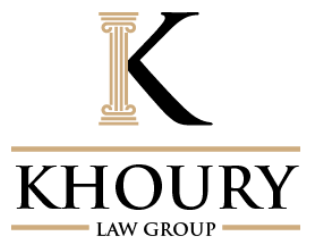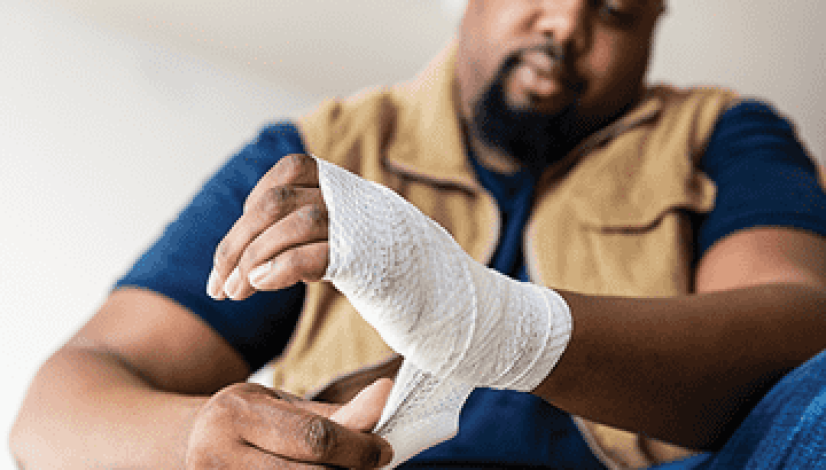What If the At-Fault Party Lacks Insurance or Assets?
Dealing with an injury caused by someone else is challenging enough, but what happens if the person who caused your injury doesn’t have insurance or assets to cover your medical bills, lost wages, and pain and suffering? This is a situation many people worry about when filing a personal injury claim, and it’s understandable to feel frustrated or uncertain about your next steps.
In this blog post, we’ll explore your options if you’ve been injured and the responsible party is either uninsured or lacks assets to pay for your damages.
Understanding the Problem: Uninsured or Underinsured Defendants
In an ideal world, every driver or person responsible for an injury would have adequate insurance to cover the damages. Unfortunately, this is not always the case. If the person who caused your injury doesn’t have insurance or doesn’t have enough insurance to cover your losses, it can complicate things—but it doesn’t necessarily mean you’re out of options.
In general, there are two main scenarios that could apply:
- Uninsured (UM) Drivers: When a driver doesn’t have any car insurance.
- Underinsured (UIM) Drivers: When a driver has insurance, but their coverage limits are too low to fully compensate you for your injury-related costs.
So, what can you do when you find yourself in one of these situations? Let’s dive into some possible solutions.
1. Use Your Own Insurance Coverage: Uninsured and Underinsured Motorist Coverage
If the person who caused your injury doesn’t have insurance or has insufficient coverage, your own auto insurance policy might come to the rescue. Many states require drivers to carry uninsured motorist (UM) or underinsured motorist (UIM) coverage, which can help compensate you for your damages if the responsible party can’t pay.
Here’s how it works:
- Uninsured Motorist (UM) Coverage: This type of insurance kicks in if you’re injured by a driver who has no insurance.
- Underinsured Motorist (UIM) Coverage: If the responsible party has insurance but their policy limits aren’t high enough to cover your medical bills and other damages, your UIM coverage can help make up the difference.
Many people don’t realize they have this coverage or don’t understand how important it is until they’re in a situation where they need it. If you have UM or UIM coverage, it’s a good idea to file a claim with your own insurance company.
2. Personal Injury Protection (PIP)
In some states, Personal Injury Protection (PIP) insurance is available. PIP insurance is a no-fault type of coverage that provides benefits regardless of who is at fault for the accident. It can help pay for medical bills, lost wages, and other expenses related to your injury. PIP insurance is often included as part of a car insurance policy, but in some states, it may be optional.
If the responsible party is uninsured or underinsured, your PIP insurance may help you recover some of your costs, even if the other driver doesn’t have insurance. If you live in a no-fault state, PIP coverage is even more important because it covers your injuries regardless of who caused the accident.
3. Suing the At-Fault Party Personally
If the at-fault person has no insurance and no assets, suing them personally for damages might not be effective—especially if they don’t have the ability to pay. However, in some cases, there could still be a legal option for pursuing compensation.
- Collecting from personal assets: If the responsible party has personal assets, such as property, savings, or investments, you might be able to go after those assets through a judgment. However, this can be difficult to enforce. You’d likely need to go through the process of filing a lawsuit and securing a judgment, and then trying to collect the debt, which may involve garnishing wages or placing liens on property.
- Bankruptcy: If the person responsible for the injury files for bankruptcy, it may discharge their debts, including any judgment resulting from a personal injury lawsuit. This can make it extremely difficult (if not impossible) to collect any compensation.
For this reason, it’s crucial to assess whether pursuing the person personally is worth the time, effort, and costs involved.
4. Third-Party Liability
In some cases, a third party—other than the person who caused the injury—could be held responsible for your damages. For example, if the at-fault driver was working at the time of the accident, their employer might be liable for your injuries through vicarious liability. This could allow you to pursue compensation from the employer’s insurance policy, which might have higher limits than the individual’s personal insurance.
Similarly, if a defective product caused your injury, the manufacturer or distributor of the product might be liable, regardless of whether the responsible party has insurance. Exploring third-party liability can sometimes open up additional avenues for compensation.
5. Health Insurance for Medical Bills
If you’ve been injured in an accident and the person at fault doesn’t have insurance, you may need to rely on your health insurance to cover the costs of medical care. While your health insurance can help cover your hospital bills, medications, and treatments, it’s important to note that this won’t cover all of your damages (e.g., lost wages or pain and suffering). Additionally, if you recover compensation later (through a settlement or judgment), your health insurance company might require reimbursement for the money they spent on your medical care.
If you’re filing a personal injury claim, make sure to understand how your health insurance might play a role in your recovery, and consult an attorney to ensure your rights are protected.
6. Seeking Legal Help for Your Personal Injury Case
If you’re dealing with an uninsured or underinsured at-fault party, it’s essential to consult with an experienced personal injury attorney. An attorney can help you explore all of your options, from filing claims with your own insurance to pursuing third-party liability. They’ll work with you to assess the value of your case and help you navigate the complex legal process of recovering compensation.
Additionally, attorneys can help negotiate with your insurance company to ensure that your UM or UIM benefits are paid fairly, and they can help you pursue a legal case against the at-fault party, even if they have limited or no insurance.
7. How to Protect Yourself from Uninsured Drivers in the Future
To avoid facing this situation in the future, consider taking a few steps to protect yourself:
- Ensure you have Uninsured/Underinsured Motorist (UM/UIM) coverage on your auto insurance policy.
- Consider higher policy limits for your UM/UIM coverage to provide greater protection.
- Avoid uninsured drivers by driving cautiously, keeping track of vehicles around you, and avoiding risky areas where uninsured drivers may be more common.
Conclusion: Your Options When the At-Fault Party Has No Insurance or Assets
While it’s undoubtedly frustrating when the person who caused your injury doesn’t have insurance or assets to cover your damages, you do have options. Using your own insurance (such as UM/UIM coverage or PIP), pursuing third-party liability claims, and seeking legal help are all steps you can take to protect yourself and recover compensation.
Navigating the aftermath of an accident can be overwhelming, especially when you’re facing an uninsured or underinsured at-fault party. By consulting with a personal injury attorney, you can better understand your options, protect your legal rights, and pursue the compensation you deserve.
Need legal help? In California, navigating legal challenges, whether they involve personal injury, workers’ compensation, criminal defense or civil litigation, can be overwhelming. Khoury Law Group is here to provide the critical legal support you need. As a leading advocate for individuals facing legal battles, our experienced attorneys understand the complexities of the legal system and are committed to fighting for your best interests. With personalized legal strategies and compassionate support, we are dedicated to achieving the justice and compensation you deserve.
CONTACT US FOR HELP. Call us at (888) 354-6879 or fill out the form on our Contact page.





